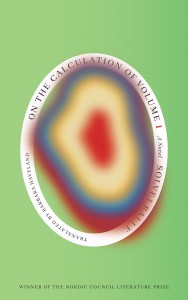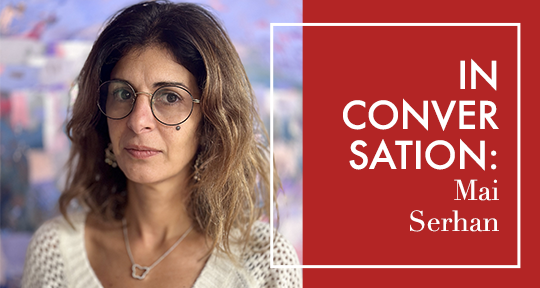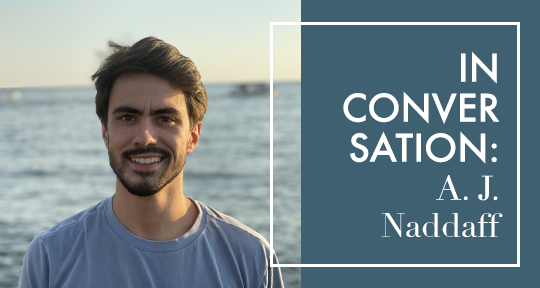The first time I corresponded with A.J. Naddaff was after I had read an early issue of his excellent newsletter Untranslatable, devoted to extensive conversations with Arabic-to-English literary translators about their craft. Startled by the sharpness, intimacy, and candour of each interview, I emailed him merely to convey my appreciation for the work he was doing and how fortuitous it seemed to me that he had begun this initiative at the time that I found myself falling in love with the limitless depths of classical Arabic literature. He wrote back, expressing genuine curiosity about my interests, saying: “Connecting with people who share this love makes the world feel a bit smaller and kinder.” That told me all I needed to know about how A.J. makes space for his interlocutors to arrive at such acute insights as “Every poem is a linguistic event which reimagines its entire tradition” (Huda Fakhreddine) and “That joy and pleasure of someone having it on with you is the very pleasure of literature. You know it and yet you still fall for it” (Maurice Pomerantz).
Besides being a gracious person and a master’s student in Arabic Literature at the American University of Beirut, A.J. wears many other hats: he is an award-winning multimedia journalist, translator, and social science researcher. He’s met and reported on people of diverse stripes, from Sufi intellectuals to ISIS extremists, co-translated Hassan Samy Youssef’s Threshold of Pain with Rebecca Joubin and Nick Lobo, and is currently working on a thesis regarding the translation of the pre-Islamic mu’allaqat into English. I was excited to encounter someone with his feelers in so many different worlds and to hear his meditations on the translatability of Arabic literature, the meanings of home, the in-betweenness of negotiating both the journalistic and the literary, and the state of contemporary Lebanese art in the aftermath of trauma.
Alex Tan (AT): In one of the first issues of your Untranslatable newsletter, you quote the brilliant Moroccan literary critic Abdelfattah Kilito, who wrote of how in the classical Arabic literary tradition, the ancients “endeavoured to make their works untranslatable.” What does untranslatability signify in classical Arabic literature? Why did you decide to name your newsletter after a quality that appears to defy the possibility of translation?
A.J. Naddaff (AJN): In my opinion, and this is up for debate, the idea of untranslatability is the wrong framing for understanding tensions that exist when translating Arabic. Alexander Key has proposed that the idea of untranslatability is a modern idea—that the ancients thought mental content (maʿnā) was always transferable between languages, from Persian to Arabic. So untranslatability was birthed out of early modern European notions, and we should push ourselves—as many translators are doing—to reimagine limits when translating Arabic into English.
Shawkat Toorawa takes it even further and believes that it’s possible to translate something sublime, like the Qur’an, into another language and to still convey the cadence, movement, and the beauty of the original, which I’m totally on board with.
AT: Most of the scholars you’ve chosen to interview so far are translators of pre-modern Arabic literature and contributors to the NYU Library of Arabic Literature series. I’d like to ask about your thoughts on the relationship between the pre-modern and the modern in Arabic writing. You work on the Mu’allaqat (hanging odes), but you’re also interested in contemporary Levantine literary production. How do you position yourself between these two worlds? Does your knowledge of pre-modern genres and forms haunt your approach to the modern?
AJN: Coming into my master’s at the American University of Beirut, I carried this notion that bifurcated “old” or classical Arabic literature from “modern.” I remember distinctly telling my teacher Bilal Orfali that I was excited to read old Arabic literature and he politely cut me off and encouraged me to think of literature more as a continuum. I think this is probably how we should think of literature in all traditions, but especially in Arabic.
So now, I position one foot in each world with no problem. I’m not haunted by my knowledge of pre-modern genres and forms besides by how little I know. Salim Barakat, one of the most celebrated modern Arabic authors, claims he only reads pre-modern works. Rachid el Daif’s novels are full of references to “pre-modern” literature: One Thousand and One Nights, Ibn Qayyim al-Jawziyyei, the Kitab al-Aghani, al-Jahiz, Majnun and Layla, and Pre-Islamic (Jahili) poetry all make appearances. Mahmoud Darwish has a famous poem where he draws on elements from the sixth century poet-king Imru’ al-Qays’s final trip to Constantinople to allegorically critique the Oslo Accords. As T.S. Eliot said: “The dead writers are remote from us because we know so much more than they did. Precisely, and they are that which we know.”
READ MORE…






